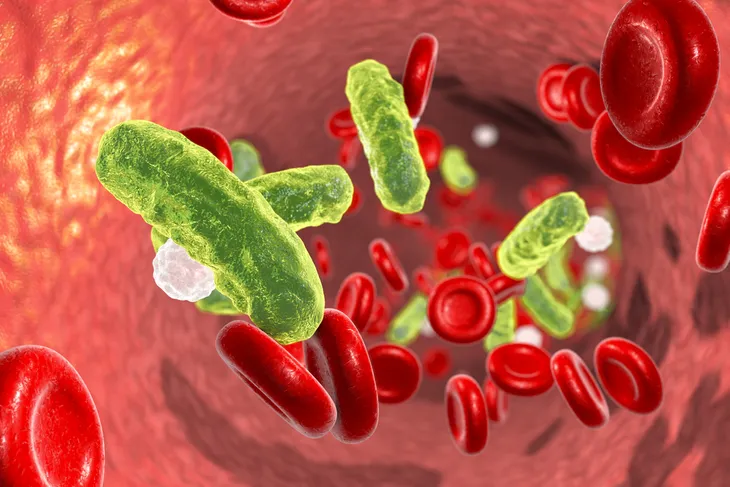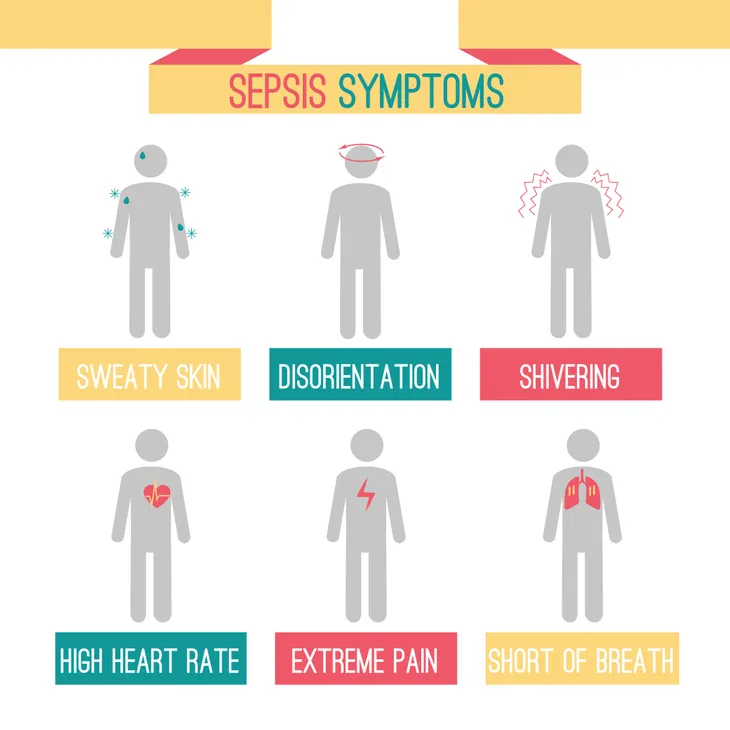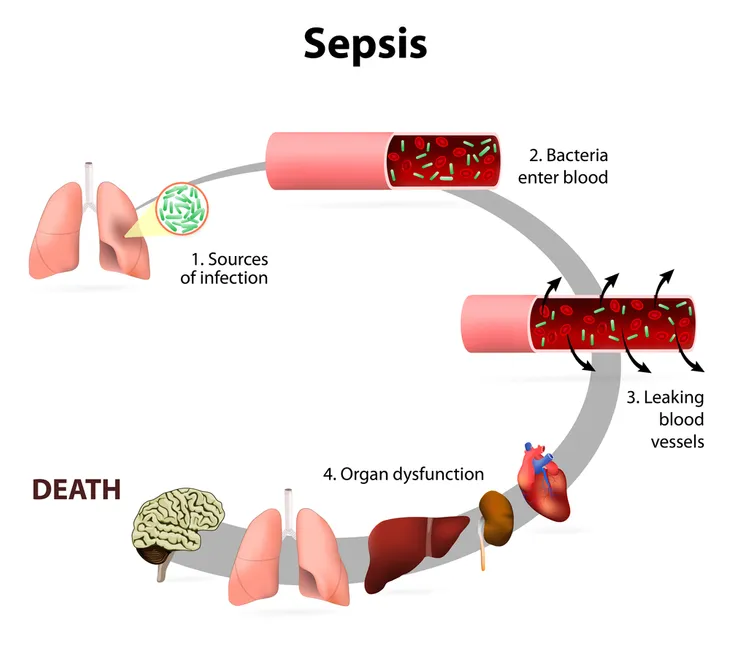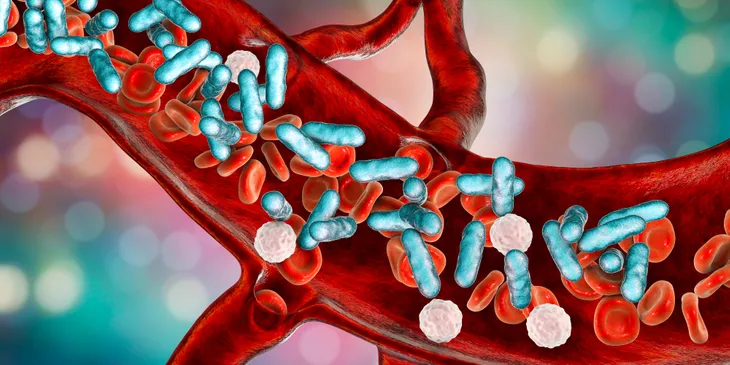Sepsis is a general term used to characterize an immune system response to an infection. This means that a viral, fungal, or bacterial infection of the lungs (pneumonia), kidneys, bloodstream (bacteremia), or abdomen can lead to sepsis. This potentially life-threatening condition is considered a medical emergency.
Here are the three stages of sepsis as well as the accompanying symptoms at each stage…
1. What is Sepsis?
We’ve already established that sepsis is a type of immune response to infection, which can result from bacterial, fungal, or viral sources. However, doctors view sepsis as a type of infection that occurs in three stages.
Sepsis is the mildest stage of the infection. Progression to severe sepsis occurs in the second stage. And, finally, septic shock occurs in the final stage. The best scenario is to treat sepsis during the first and mildest stage.
2. Who’s at Risk for Sepsis?
According to the Mayo Clinic, sepsis is on the rise in America, particularly among aging populations (or those who exceed the age of 65-years-old).
However, those living with compromised immune systems, such as HIV patients, cancer patients, or patients awaiting organ transplant, can also be at increased risk of sepsis. Likewise, antibiotic-resistant bacteria (types of bacteria that withstand the effects of specific antibiotics that are meant to eradicate them) can also result in sepsis.
3. Hospitalization and the Risk of Sepsis
Any patient at risk of infection can be considered vulnerable to sepsis. This is why the Mayo Clinic Health System considers hospitalized patients, particularly those in the intensive care unit (ICU) following a surgery or hospitalized due to an existing infection among the highest risk.
Patients who undergo surgery, particularly if they are older, have suffered a burn, have a severe wound, or those wearing invasive medical tools (i.e., breathing tubes or intravenous catheters) should be vigilant against the development of an infection. When the immune system is already compromised, emergency medical care is imperative at the earliest sign of infection.
4. Symptoms of Mild Sepsis
Patients with sepsis in the first, or mild stage, typically exhibit an accelerated heart rate (higher than 90-beats per minute), quickened breathing (a respiratory rate that exceeds 20-breaths per minute), and a diagnosed infection (typically of the kidneys, blood [bacteremia], lungs [pneumonia], or abdomen).
A fever with a temperature of 101-degrees Fahrenheit (38.3-degrees Celsius) or higher, is also quite common in those with sepsis. Doctors will typically diagnose sepsis in patients that display at least two of the symptoms above. Luckily, experts at the methicillin-resistant Staphylococcus aureus (MRSA) Survivor’s Network claims that the majority of patients recover completely from mild sepsis, with only a mild mortality rate of 15-percent.
5. The Signs of Severe Sepsis
As mentioned, the hope is to diagnose sepsis in the first and mildest stage. In severe sepsis, a vital organ risks going into failure. This is why doctors only need to identify one symptom of organ failure to confirm a diagnosis of severe sepsis.
Symptoms of severe sepsis can include difficulty breathing, severe abdominal pain, decreased urination, irregular or abnormal heart function, abnormal mental behavior, and low platelet count. Although the MRSA Network says the recovery rate is about 50-percent, suffering from severe sepsis can make a patient prone to an increased risk of infections in the future.
6. Symptoms of Septic Shock
If a patient progresses to the third and final stage of severe sepsis, they can display any of the above symptoms of severe sepsis—including increased or abnormal heart rate, increased breathing rate, high fever, abdominal pain, impacted mental state, and low platelet count.
However, a patient in septic shock will also display extremely decreased blood pressure and be unable to respond to fluid replacement. According to the MRSA Survivors Network early detection is vital, as 50-percent of all patients die from septic shock.
7. Complications from Sepsis
Sepsis is a progressive syndrome that starts mild, leads to severe sepsis, and then septic shock. This means that worsening sepsis can cause blood clots to form, severely restricting blood flow to your vital organs—including your lungs, kidneys, heart, and brain—and causing organ failure.
Blood clots that develop in the organs will also restrict healthy blood flow to bodily tissues, particularly the extremities (i.e., fingers, toes, arms, and legs), resulting in gangrene (tissue death).










